The Auteur Theory
In which Norm explores the echoing signatures of Ryusuke Hamaguchi's first feature, PASSION, and Ben Wheatley's latest, MEG 2: THE TRENCH.
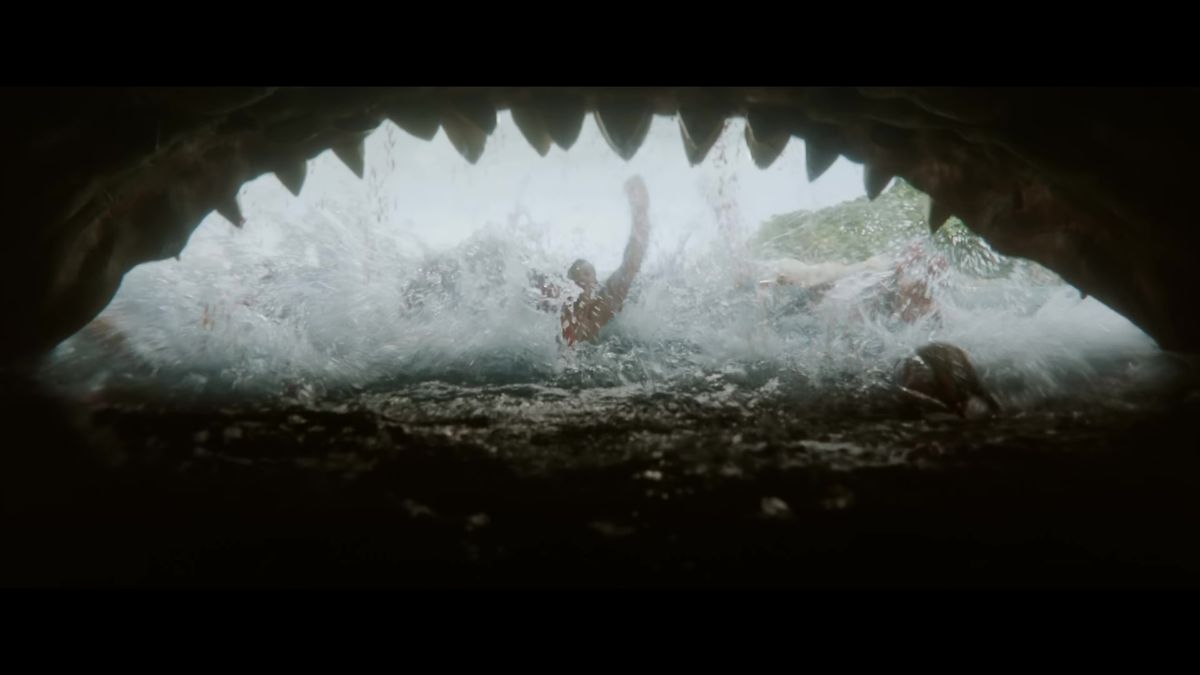
In his Film Freak Central review of Sofia Coppola’s Priscilla, Walter Chaw opens by taking the director’s critics to task for claiming she keeps telling stories about the same type of protagonist – to quote John Harkness again, that all of her films are poor-me studies of beautiful, wealthy people who, despite being beautiful and wealthy, cannot be happy with what they have.
For what it’s worth, I think Coppola’s critics are half-right; the issue isn’t that her characters all share a certain existential state, but that she keeps telling the same story, and after a quarter of a century it’s getting stale. (God knows I’ve said the same thing about Wes Anderson.) But it pulls at a larger question: What do we want from our auteurs? Do we want them to serve us the same gourmet meal every time, or surprise us with something entirely different?
Take Ben Wheatley, the English filmmaker who’s carved out a distinct body of work over the past decade and a half. You’ll know him by his frequently gritty aesthetic – which blooms especially well in his collaborations with cinematographer Laurie Rose – and his fondness for dark humor. Me, I love the sheer pleasure he takes in working in genre cinema, and his willingness – maybe even an eagerness – to drag the viewer into all sorts of unpleasant spaces.
From the simmering psychodramas Down Terrace, Kill List and Happy New Year, Colin Burstead – all of which take high-strung characters to their boiling points, and beyond – to the psychotronic freakouts of A Field in England and In the Earth to the more polished high-concept wildness of High-Rise and Free Fire, Wheatley has crafted an intimate, bristling cinema where violence lurks around every corner, just waiting for the opportunity to do some damage. Even his outliers, the delightful Sightseers and that stately Netflix adaptation of Rebecca, have that unpredictable, dangerous quality. And yet, somehow, here he is making a big studio picture where Jason Statham fights a small army and several giant sharks.
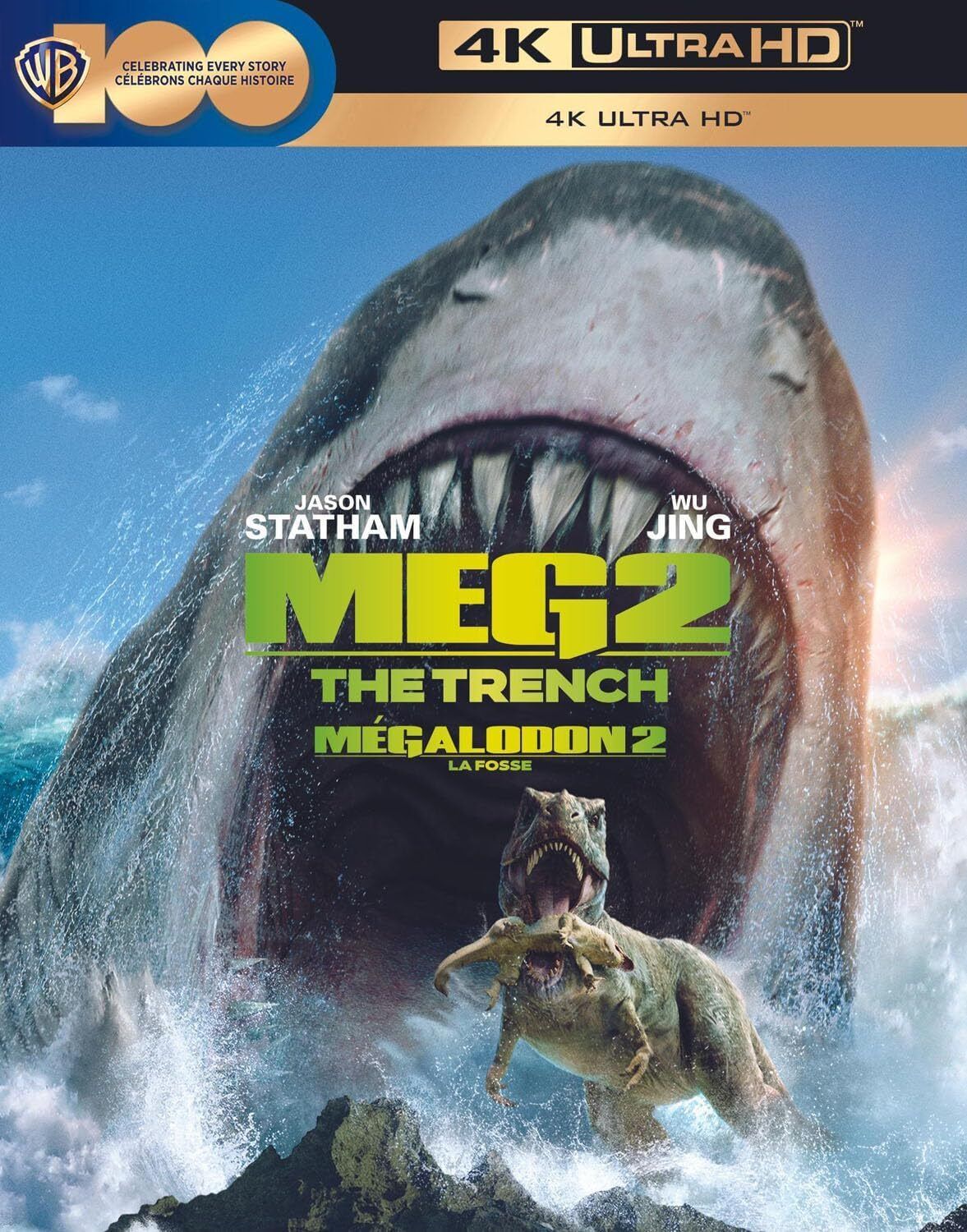
That would be Meg 2: The Trench, the preposterously pumped-up sequel to Jon Turteltaub’s entirely disposable 2018 giant-shark thriller The Meg, which first pit Statham’s ace rescue diver Jonas Taylor against the prehistoric jaws of the eponymous critter when he learns his wife Suyin (Li Bingbing) and her oceanographic research team are trapped with one in a geologically unique vault deep in the Mariana Trench. It played like a perfunctory adaptation of an airport novel, more or less, with a third-act swerve into proper disaster-movie territory as Jonas and Suyin trying to save vacationers on a Chinese beach from another, larger Meg. That bit was fun, with Statham playing the stone-faced absurdity for all it was worth.
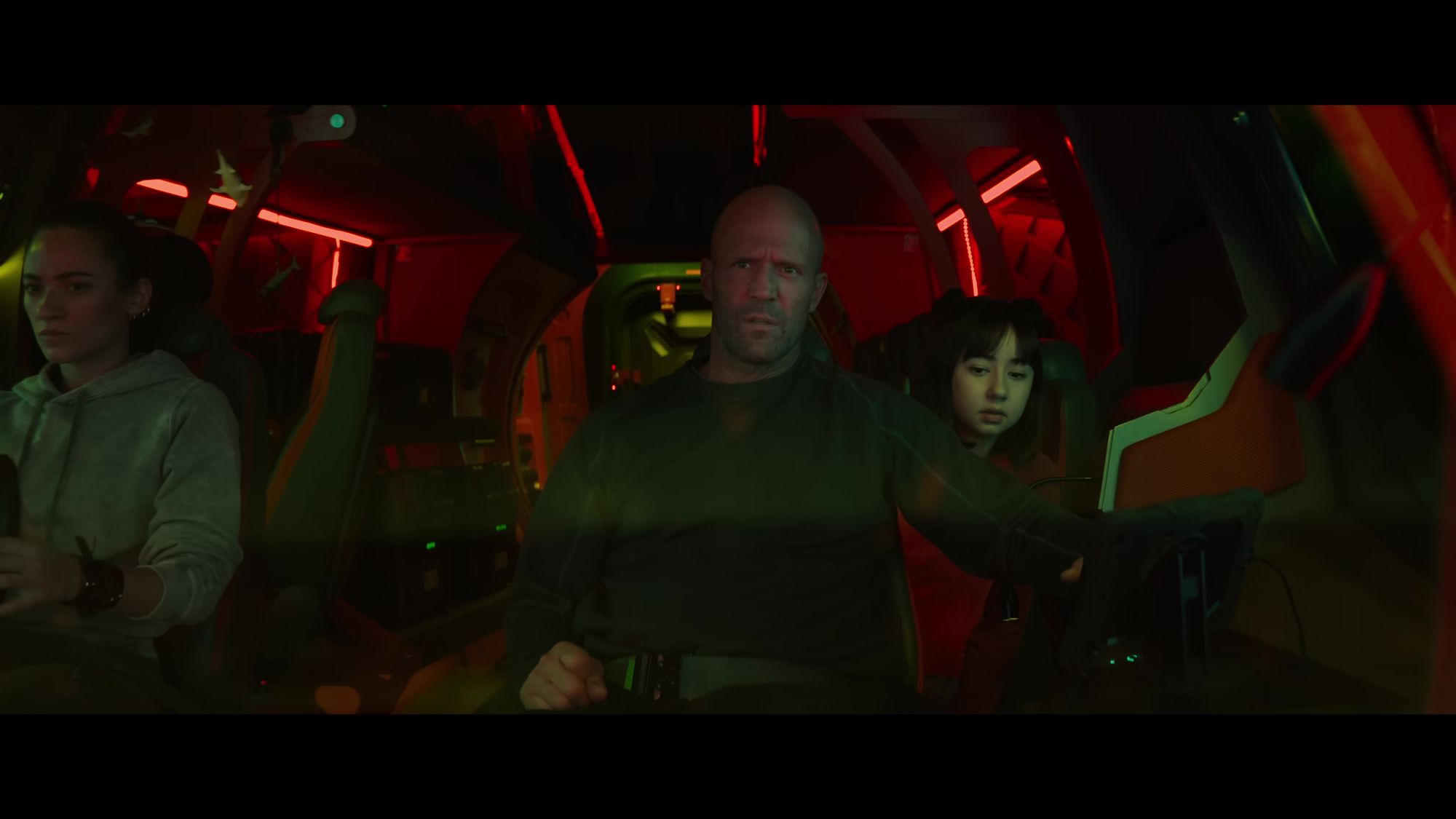
The Meg made more than half a billion dollars at the global box-office, and since Steve Alten has written six more Meg novels another movie was inevitable. Thus we have The Trench, which is putatively an adaptation of his second book but which really operates from an entirely different starting point: Here is a lot of money, go make Jason Statham fight another giant shark.
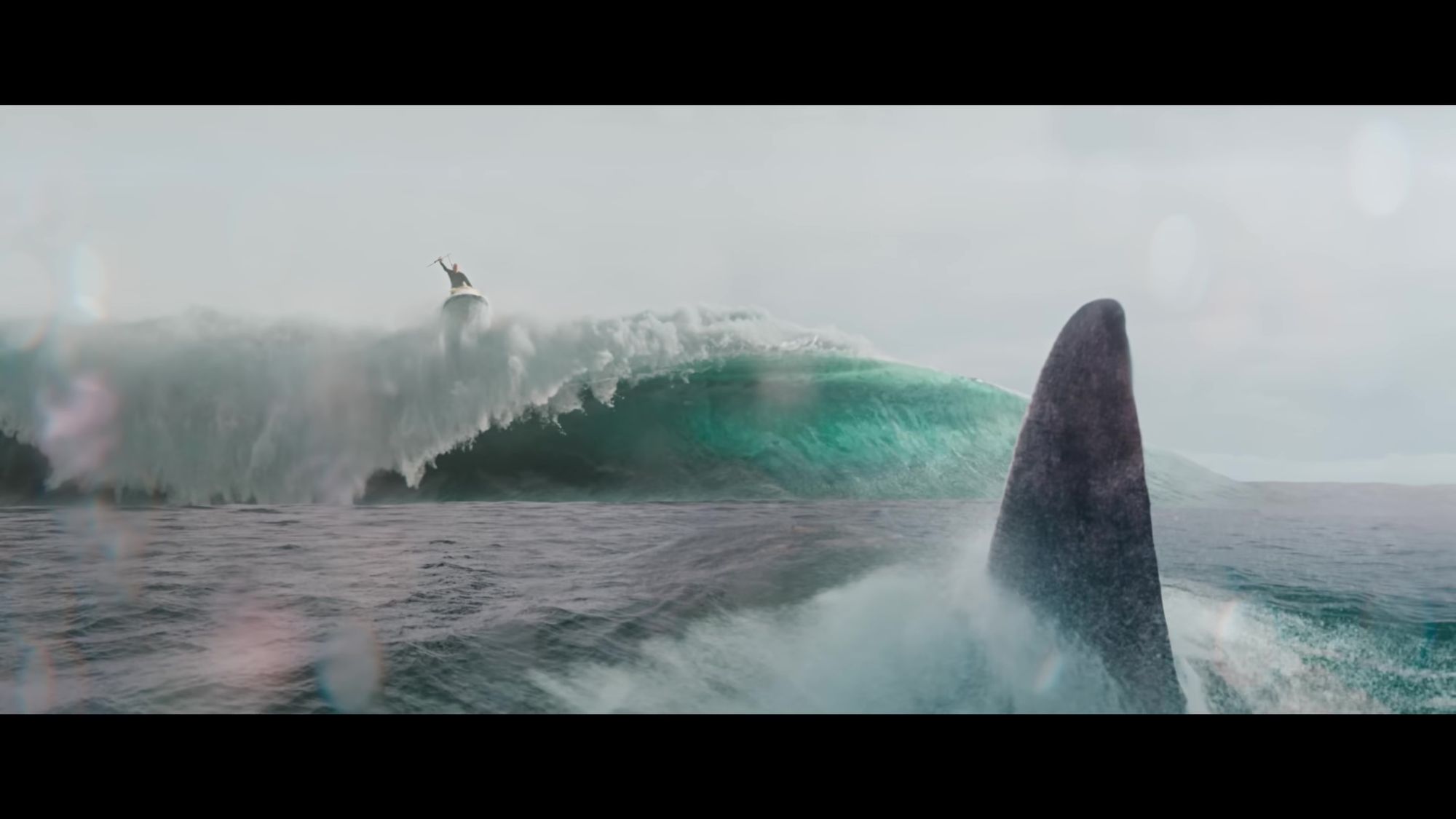
Wheatley, who’d been set to direct Alicia Vikander’s second Tomb Raider movie for Warner before that project dissolved, approaches The Trench as though he’s remaking the original film and spinning out several different sequel pitches all at once.
Once again, explorers from the Mana One research station are trapped in the Mariana Trench with very large monsters – only this time, Jonas is part of the team, and his focus is entirely on protecting his now-teenage daughter Meiying (Sophia Cai, reprising her role from the first film), who snuck aboard his sub to see all the cool stuff Jonas talks about but won’t share with her, having clammed up after the deaths of Suyin and her father in a recent diving accident. But don’t worry, Jonas is working through his grief by staging elaborate raids on unethical deep-sea mining operations – one of which happens to have set up a base in the trench, setting off the very explosions that trapped Jonas and his pals on the sea floor, forcing them to make a dangerous three-kilometer walk in pressure suits to reach safety. But the very same bad guys are also mounting an armed assault on Mana One topside!
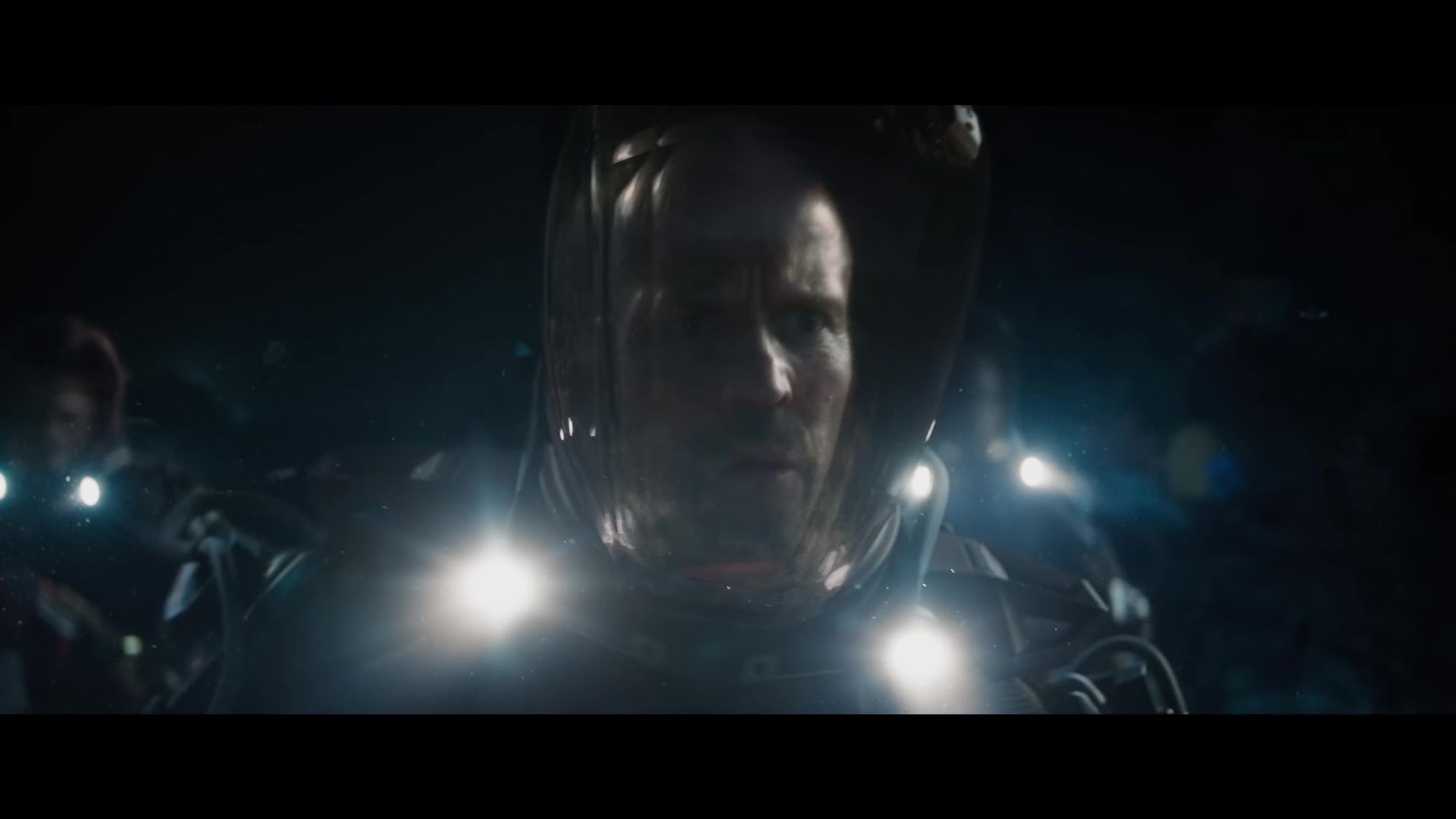
So really, the giant prehistoric sharks are the least of Jonas’ problems. He’s stuck in a mash-up of The Abyss, Deep Blue Sea, Die Hard and that Kristen Stewart movie that came out just before the pandemic … and all of it has to be resolved by the end of the second act, so Jonas and company can save another tourist spot from rampaging Megs. This time, the location is a beatific place known as Fun Island – another hint that Meg 2 isn’t taking itself entirely seriously.
And it’s in that irreverence that Meg 2 finds its appeal: Yes, it’s overlong and dumb as a box of rocks, but it knows that; not even Ben Wheatley can find a way for Jason Statham to punch a giant shark in the face, but he can show us how badly he wants to get there. Meg 2 is filled with silly tangents and dopey treats, like the opening action sequence that lets Statham beat up a cargo ship’s worth of baddies after he’s caught them dumping toxic waste into the open ocean – a fun, utterly pointless set piece that’s just there to import Statham’s kickpunching skills into this universe so he can take on the real bad guys later.

There’s also a weirdly charming running gag about Jonas’ brother-in-law Ju-ming (Wu Jin, stepping in for the absent Li and Winston Zhao as the film’s Chinese box-office draw) cheerfully inserting himself into extremely perilous situations and emerging unscathed every time; it’s not as meta as the bit in F9 where Tyrese Gibson’s Roman becomes briefly self-aware, but it’s a fun acknowledgment of how far from real-world consequences this series has strayed. It’s also nice to see returning sidekicks Cliff Curtis and Page Kennedy turn up to goof around within the larger mayhem.
Does The Trench stand as un film de Ben Wheatley, in the end? Nah, not really. He’s happy to participate in the generic production featurettes that accompany the film on Warner’s separate 4K and Blu-ray releases, and I enjoyed the cognitive dissonance of seeing Ben goddamn Wheatley talking about a silly shark movie in expensive locations and elaborate soundstage setups. (He did make a couple of high-value Doctor Who episodes, so this isn’t his first time working with a budget, but even so.) He’s clearly having a good time, though, and we get to have a good time too, and if he announces he’s making another of these things I would not be averse to that, as long as he makes time to do his own thing between studio blockbusters. One for them, three for him. That feels like a good deal.
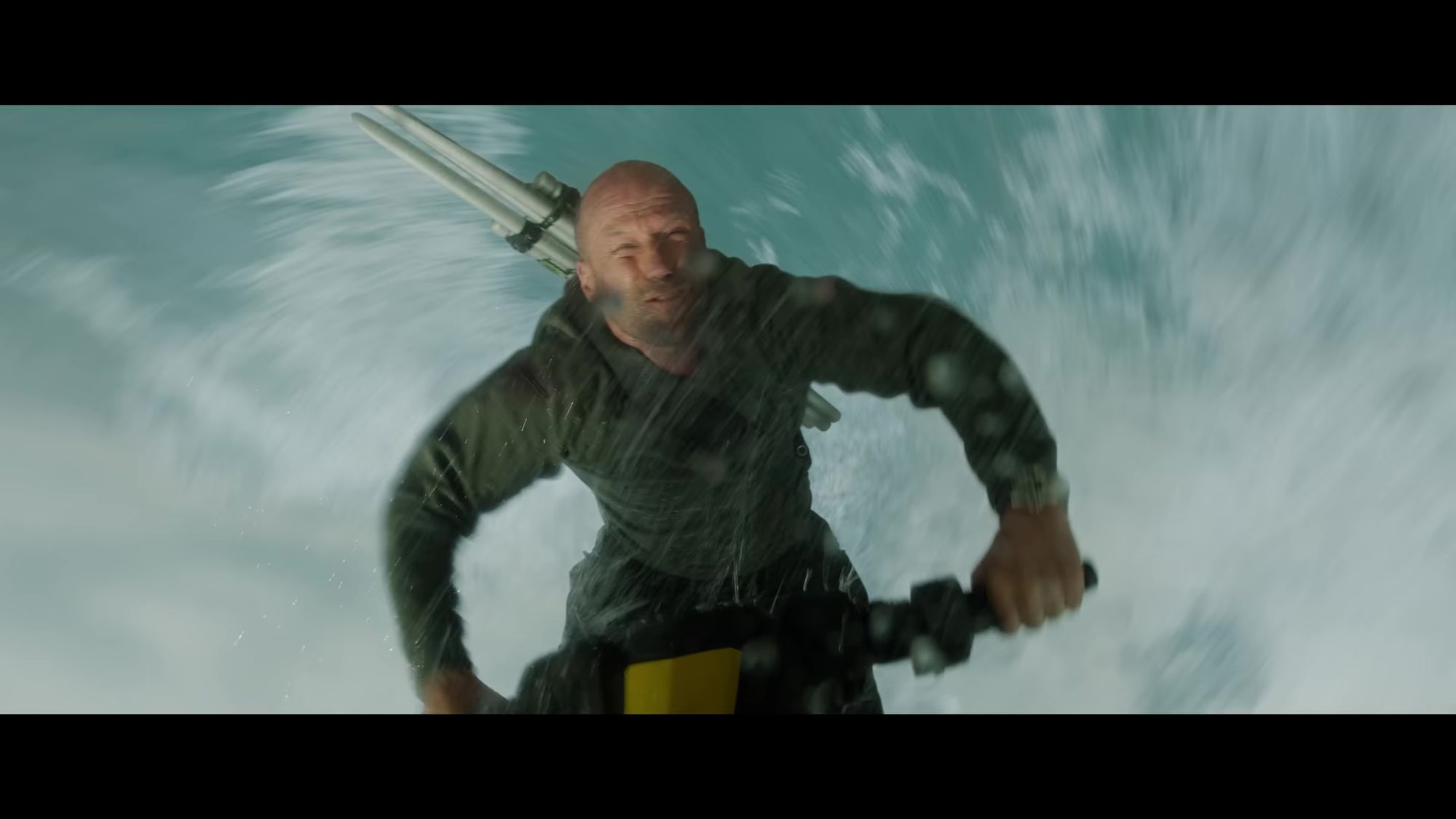
Speaking of people who can do a certain thing better than anyone else, I still have to catch up to Ryusuke Hamaguchi’s Evil Does Not Exist, which I managed to miss when it played the festival last month. But I understand it’s of a piece with his recent run of careful, contemplative dramas, where deep emotion lurks beneath pleasant conversations like, well, a giant shark cruising under the still ocean surface. And having happily lost myself in the dense seas of Happy Hour, Asako I & II, Wheel of Fortune and Fantasy and the Oscar-nominated Drive My Car, I look forward to diving back in.
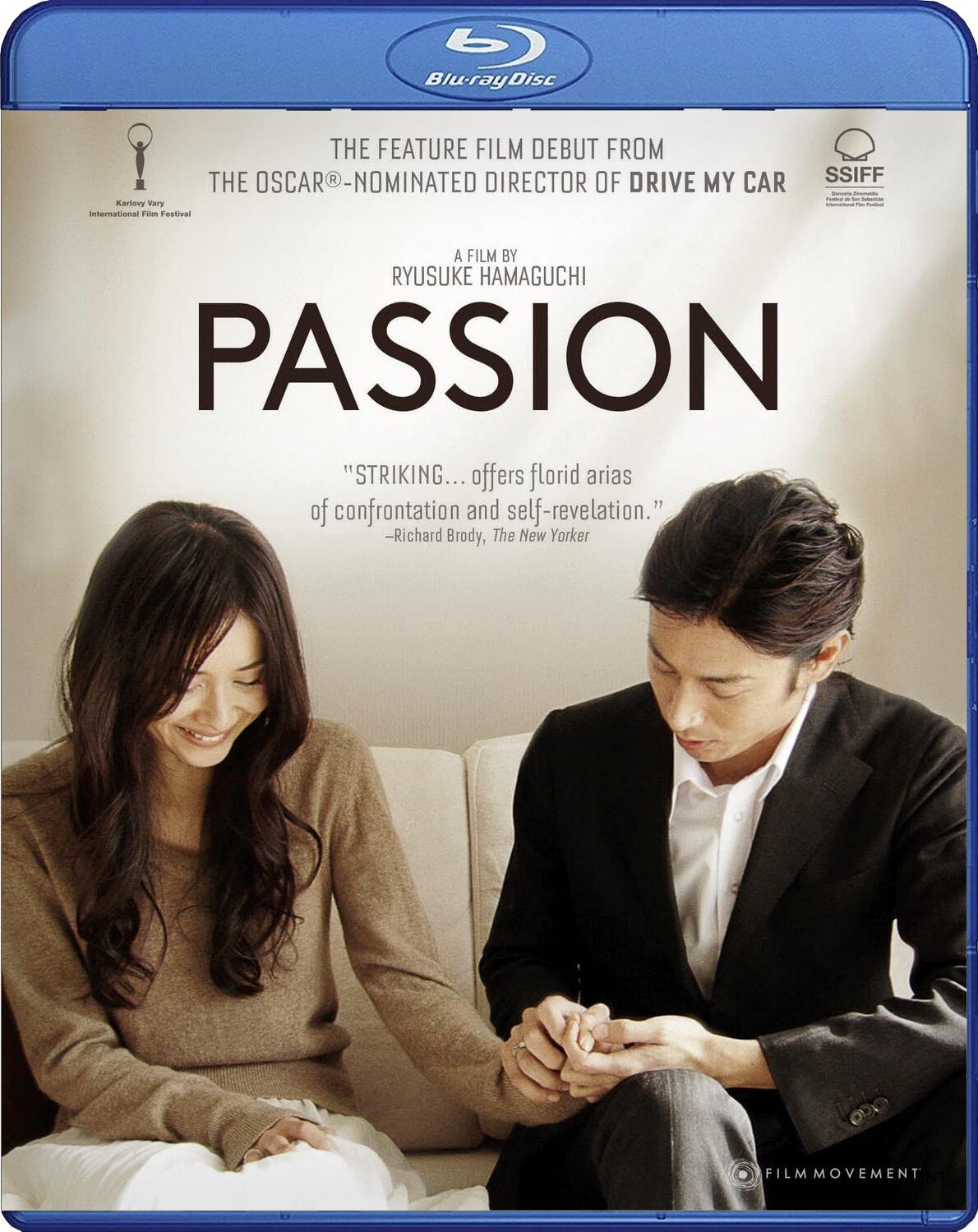
What I didn’t expect when I spun up Film Movement’s new Blu-ray of his first feature, the 2008 drama Passion, was something so … jagged. Produced as his thesis project at Tokyo University of the Arts, Hamaguchi’s ensemble study of a friend group that splinters when two of their number announce their engagement is shot and cut like an American independent film from the late ’90s, with a unpolished DV look and a jittery editorial scheme. It’s literally a naïve work, I suppose … but given what followed, it feels downright experimental.
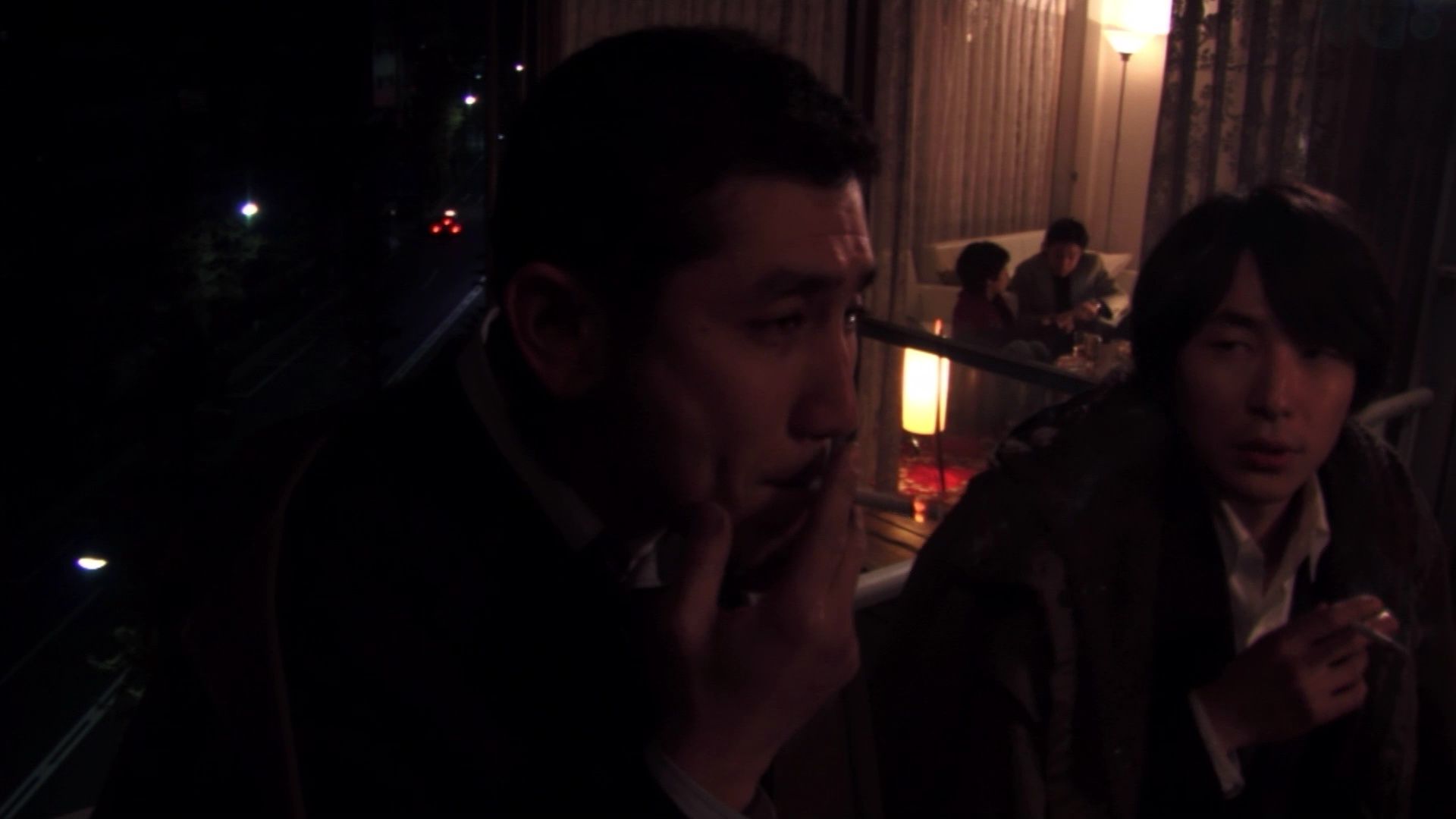
Thematically, Passion is of a piece with Hamaguchi’s later movies, almost wholly concerned with the delicate ways in which people navigate emotional minefields, each with their own agenda, all trying to get what they need. It’s expertly attuned to the social and emotional dynamics of every situation in which it places us, but everyone is just so much more raw, prone to raised voices and people unflinchingly calling out one another’s bullshit. He hadn’t yet discovered the limited, more measured range in which his drama thrives – or maybe he had, and this was his version of rumspringa before committing to a more ascetic life.
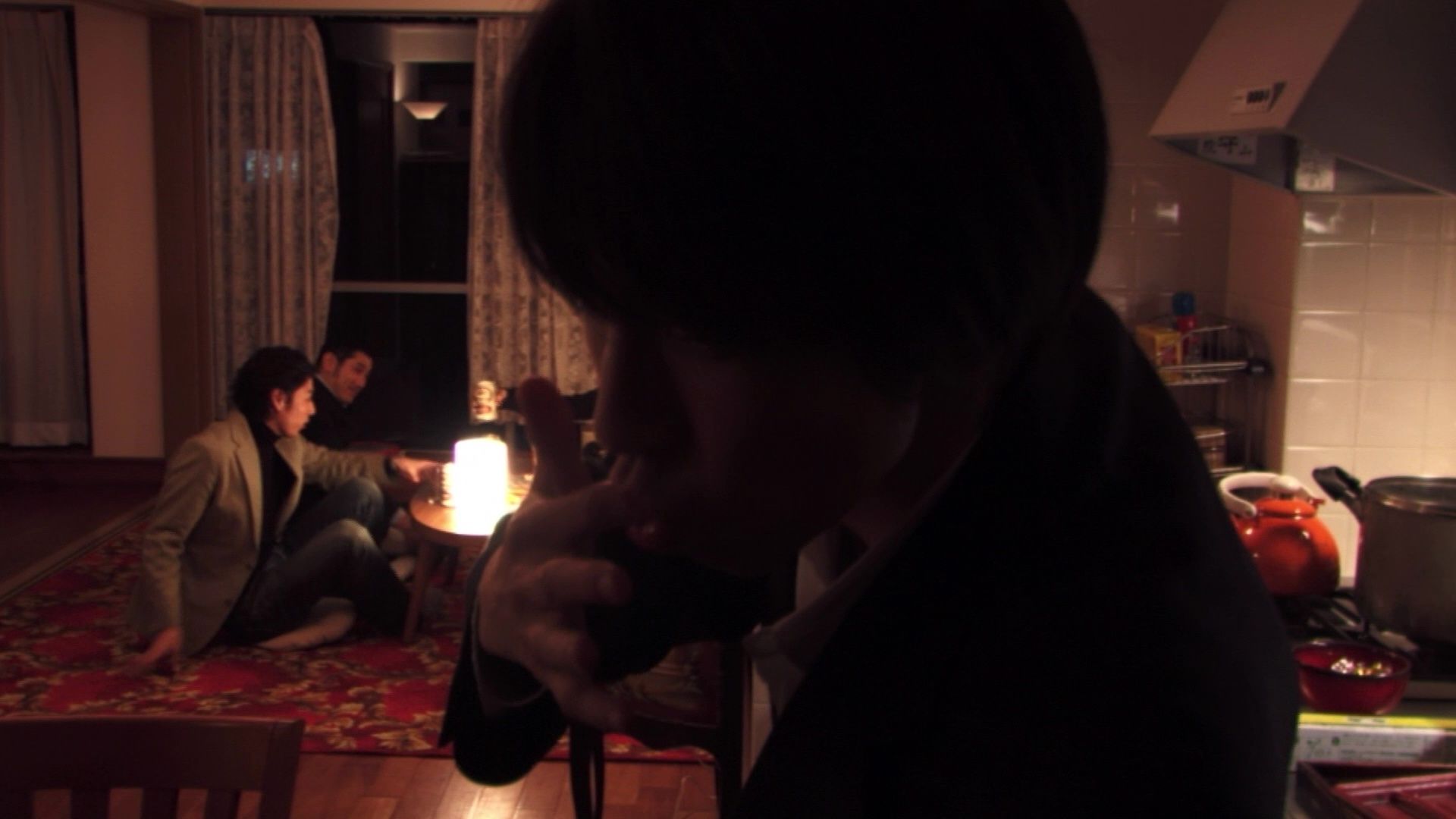
Whatever the reason, Passion now plays as a fascinating artifact, the missing link on the evolutionary diagram of Hamaguchi’s filmography. (Today’s column is just bursting with mixed metaphors, I’m afraid.) It’s slender but not weightless, with a cast of emerging actors who make the most of the opportunity. Two of whom, Aoba Kawai and Fusako Urabe, would reunite a decade later for a segment of Wheel of Fortune and Fantasy; it’s nice to see them here and feel Hamaguchi considering their potential, wondering what else they might be capable of. Passion is a movie where the talent comes into focus before your eyes; I can only wonder what it might have felt like to experience it without knowing where it would lead.
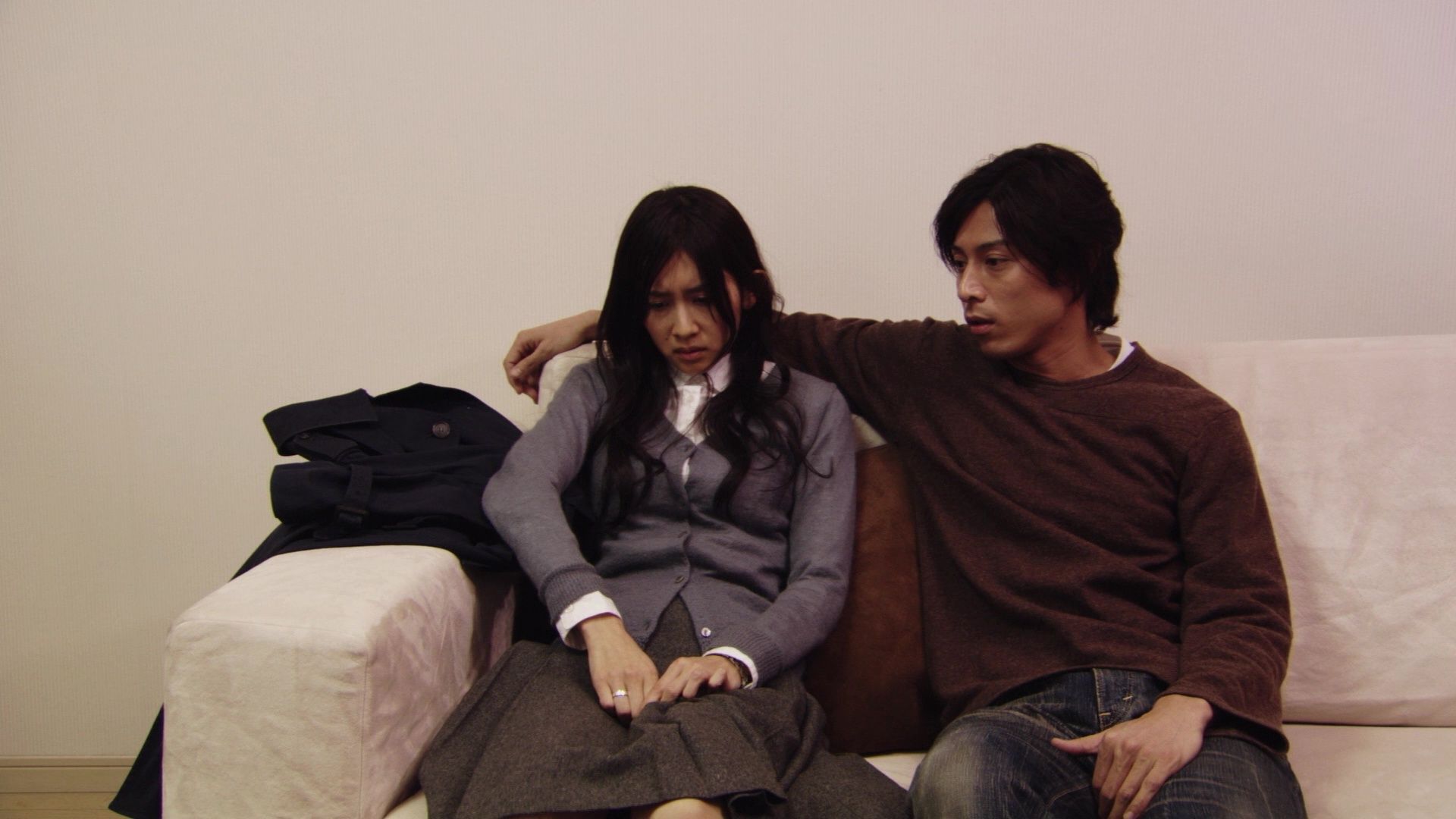
Film Movement’s supplements are unsurprisingly modest, given the nature of the film; it’s not like Hamaguchi had a doc crew following the production. The filmmaker contributes a brief introduction, and there’s a new video essay from Kenji Fujishima, “From Passion to Fortune”, which places Hamaguchi’s debut in the larger context of his career – and if you’re wondering why it stops there, it’s probably because Wheel of Fortune and Fantasy is the other Hamaguchi film Film Movement released on disc. Pretty good, too.
Meg 2: The Trench is available in separate 4K and Blu-ray editions from Warner Home Entertainment. Passion is available on Blu-ray from Film Movement. Very different audiences, obviously.
In Sunday’s paid edition: With the seventh film hurtling towards disc next week, I finally deliver that overview of the Mission: Impossible franchise I’ve been promising all summer. Your mission, should you choose to accept it: Upgrade that subscription!
